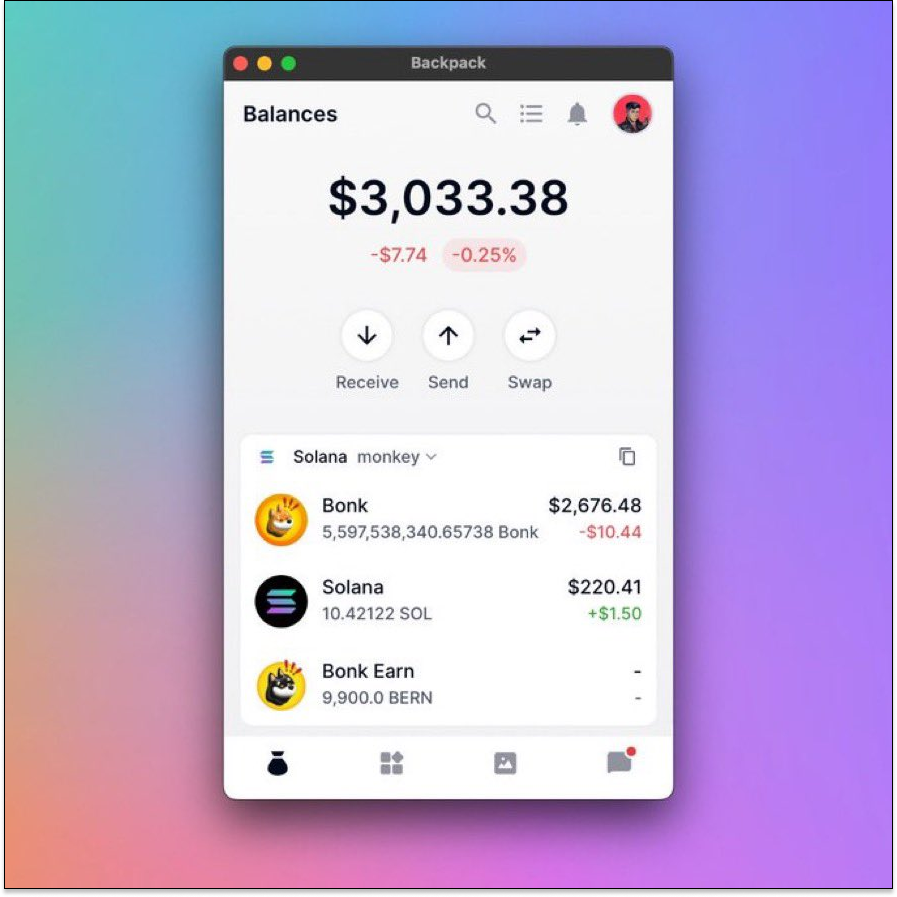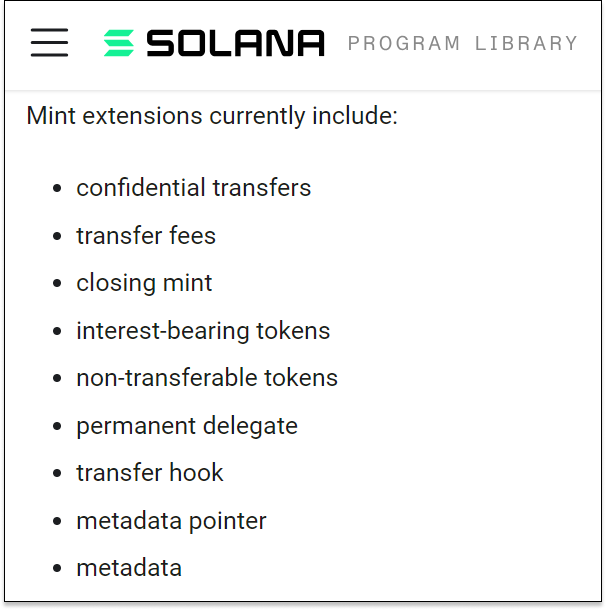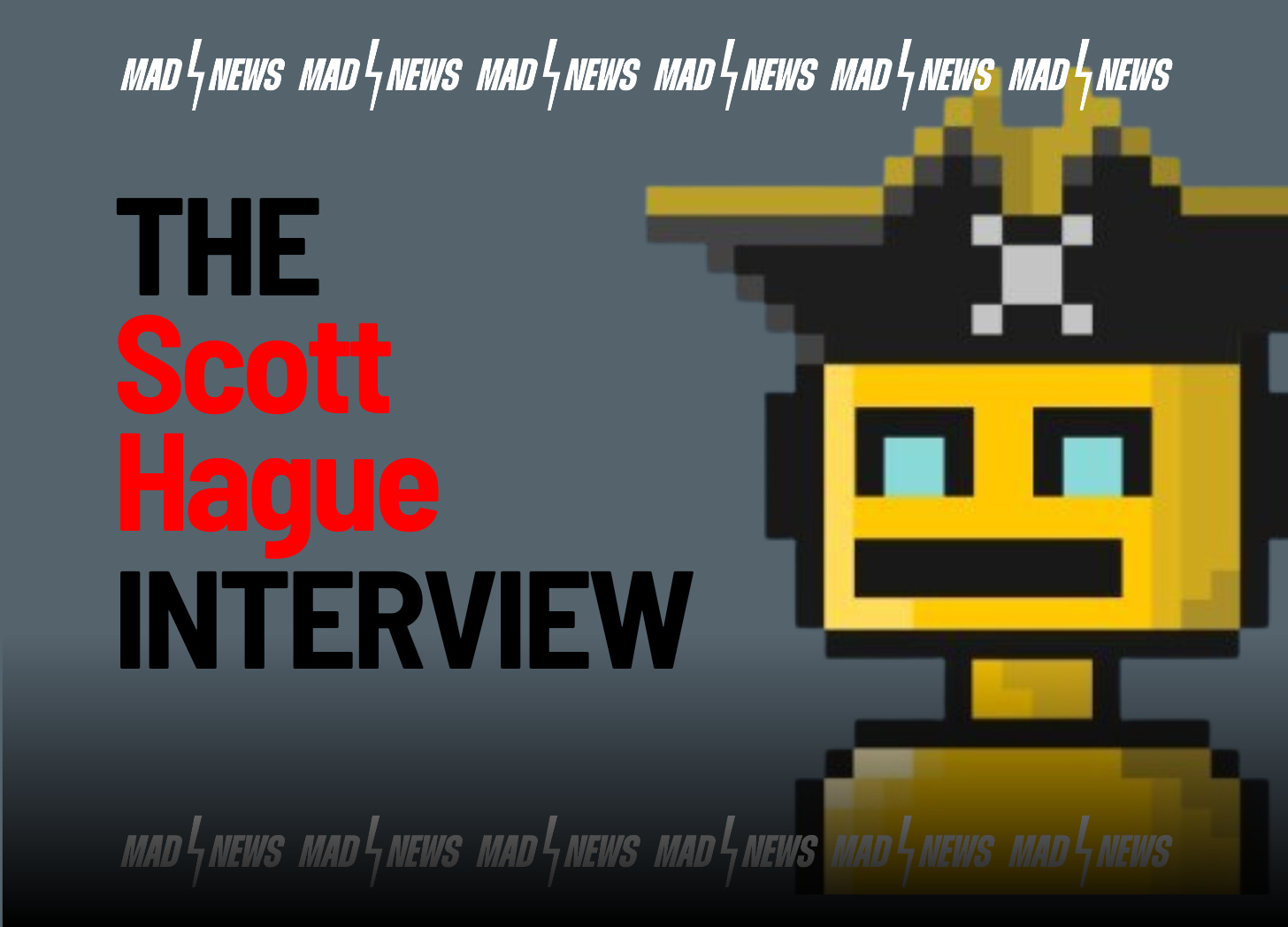Token-2022: The Future of SVM Tokens
Journey with us to learn about Solana's Token-2022, how the new technology is being used, which teams have already implemented the standard and new creative things developers can build.
Scott Hague (a.k.a. Cloakd ⏳ on 𝕏) has been working with web3 teams to implement Solana’s Token-2022 since the new protocol launched earlier this year.
He joined us from his home in the U.K. to chat about why Token-2022 is important, building projects around the new standard, helping others execute their transitions and what this means for developers in the future.
You can think of Token2022 as a new and improved version of the token program on Solana. It can handle both fungible and non-fungible tokens.
This new program still has all the features of the old Token program but it now comes with a set of useful new features designed to improve token functionality on Solana. These new features which are the real magic of Token2022 come in the form of extensions.
Token-2022 is a major focus during Breakpoint 2023 and there are numerous events centered around the subject.
How are you implementing Token-2022?
Scott: We’ve launched FluxBeam which is the leading Token-2022 DEX. We’ve been working with as many DeFi partners that we can to get them integrated and upgraded into Token-2022.
Scott: We’ve done the Raydium AMM, we worked on a fair bit of the open source for that. For the Hyper Drive Hackathon [we submitted] a full open book upgrade for Token-2022. And then multiple other projects we’re working with.
Hopefully we can push the adoption of Token-2022 a bit.
We’re also working with a lot of RPC guys and general ecosystem partners to try and spread awareness about it, get everything upgraded as much as we can.

Scott: It’s such a powerful new protocol, I think it really deserves a bit more of a spotlight.
Especially coming from an ETH background, it takes away so much of the complexity when it comes to launching these slightly more complex tokens.
Scott: And equally, I think it just opens up a whole new avenue of where both DeFi and NFTs can really start merging together, utilizing some of the new extensions to basically have a global liquidity layer at that bottom layer, no matter if it's a DeFi token or an NFT token.
What has been the most notable use of Token-2022 so far?
Scott: There’s a fair few, a lot of the early meme coins, BERN being one of our leading tokens with the Token-2022 launch.
We helped them fairly extensively getting all that launched, and they've been doing some great things building out on top of the protocol.
I think there has been a fair few others like Moon and Jeff.

Scott: The most recent one we saw was Phoenix , they’re a Token-2022 token that started utilizing on-chain gaming, so they’re an interesting one to watch.
Scott: We’ve had reach outs from a fair few DAOs as well, in terms of getting them integrated and how we can utilize some of the more complex features like Transfer Hooks for better on chain governance.
What are some useable products that utilize Token-2022?
Scott: We’ve got FluxBot launched on top of Token-2022. FluxBot is a Telegram bot that allows users a really easy onboard onto Solana with the ability to trade tokens.
You’ve got full monitoring for all the new token pools being launched, its got token snipers in it and we’ve recently done a marginfi integration so you can manages all of your liquidation notices, your borrowing and your lending all in on app.
You get real time notifications through all of it.
We're seeing a lot of people, especially over the past year as we saw liquidations go up, and we saw these lending providers become more prominent. Especially across the NFT ecosystem.
Scott: We really need better coverage from a notification perspective and a remote management perspective. It's not meant to replace wallets or anything like that. You want to always ensure you've got a cold store and a decent hot wallet set up.
This is more what we look at as like a companion.
It's a companion wallet of whereby you can manage small aspects of the Solana ecosystem on the go whether you're going up a mountain in Scotland or just on a walk with your dog.
It doesn't leave you high and dry when you haven't got your keys around.
Scott: We've been doing a lot of “let the audience funnel in to see where many users coming from” across the five, six projects we've been working on.
For the most part it does seem to be in the Eastern hemisphere, especially around Asia and stuff like that.
It's really taking off in terms of a crypto aspect.
I'd say 80-90%, are on mobile.
So it's a really nice bridge for them that they can dip their toe into the water with noncustodial wallets but they don't have to go all the way in and learn the full suite of tooling that you need to do in terms of which dApps to go to, which ones to avoid.
Scott: It’s all in a really easy to use, familiar interface. Now Telegram is not the most UI-pleasing interface, but it's very intuitive from a lot of users perspectives.
So we've been working very hard on just getting all of that rolled out, we rolled out a load of multi-language support as well. We support over 11 languages now, to really ease that onboarding into crypto.
We're working on a few other things that should really make people's lives a bit easier coming in from a fiat background into a crypto Solana background.
What are some creative things that developers can do with Token-2022? What haven’t you seen done yet? What would you like to see a team building?
Scott: Yeah, great question. I mean, there's a lot of scope when it comes to Token-2022
For me, the most interesting extension at the moment is permanent delegate or default account state implementations.
That basically means you either have full control over a token, or you can set the token when it's received by a user into a frozen state, and then they have to perform an action to unlock it.

Scott: It's really really powerful for the airdrops. We've worked with a fair few of the airdrop teams to get these massive token airdrops going. We always noticed there is a huge portion of your user base which just dumps out tokens as soon as they receive them.
Default and permanent delegate really allows for a bit more control than what we've seen historically. There's no bypassing a lot of these extensions.
I think the key one in terms of long term, really cool stuff to do, especially looking from a development perspective, would be Transfer Hooks.

Scott: These are incredibly, incredibly powerful. We haven't seen anyone really go near them yet. We do have a few devs that are looking into it, but we haven't seen anything come out really utilizing them.
I think a lot of people are obviously waiting for the full official audit to come out covering all the new extensions. That's probably the one we've got our eye on at the moment.

Are you putting resources towards documentation for Token-2022?
Scott: Absolutely. I mean, we're doing a lot of advisory stuff with projects at the moment, just to get them off the ground while we're teasing out a lot of the details with them.
That's all going into a central knowledge base which we can then use to build out an extensive piece of documentation for Token-2022.
I think I've complained on Twitter enough about poor documentation so we really want to tackle that from our side.
Scott: [We’ll have] videos, but, equally really clear and easy to use documentation on how to upgrade, how a developer can integrate, real world examples we’re looking to build. A full implementation that they can then work off of, to build out.
Is your team coming out to Breakpoint?
Scott: There will be at least two or three of us there.
I'm giving a talk on the Development stage at Breakpoint as well, specifically on Token-2022.
I'm around if anyone's looking for a job.
Please do come up and let me know because we're actively looking for users in the industry and devs in the industry to join the team.

How many people are on the AlphaBatem team?
Scott: It's actually quite a diverse team. We've got six people on staff at the moment split between the founders and some of our support staff.
We've got a great developer and a great designer onboard with us. They've been helping out a lot with Rust and some of our gaming implementations, especially around the asset design.
Myself that's got a large background in technology. We've got John who is Chief Operations Officer [whose] got a long experience in enterprise operations management.
Francis, who's our CFO, and Julian, who's also our biz ops manager, all with long, long lists of a previous web2 experience.

Scott: We all came together three years ago with the same idea around how web3 should work or how we could contribute to web3. Also I think, quite frankly, getting sick of some of the shenanigans that go on in web2.
We had a very, very good synergy from there.
We are actually extending our team out as well. So we are looking actively for more developers to build out our development team.
Have you worked on any xNFT projects?
Scott: We've actually gotten multiple projects on the go with xNFTs. They are slightly further down in the backburner list at the moment. We've got a full on chain game, all built into an NFT coming out, hopefully, in the next couple of weeks.
I've been keeping an eye on Backpack ever since it was in beta. I really liked the wallet. We use it as our main dev wallets internally as well.

Scott: For the most part, I've been looking more on the [penetration] testing side around a lot of the xNFT's, so I've worked with a few of the xNFT games that have launched recently just to make sure they're nice and secure.
But I think overall it’s an absolutely great platform.
For us, we're just waiting for the whole GitHub thing to be either open sourced or updated because I think they're working on a big feature or something at the moment.

Scott: So we're just seeing where that lands over the next couple of months, but working heavily with it for a good five, six months now. We're pretty happy with it so far.
How are NFTs going to be disrupted by Token-2022?
Scott: We've got a fractionalized NFT pool system coming out, I think probably towards the end of the year. Most likely as open source as well so people can build on it.
Hoping that's going to kick off some of this DeFi convergence into the NFT market because I agree it's more token friendly, it makes it so easy. I think the big one that Solana has been fighting against for the past year or so is this whole royalty enforcement.
Scott: When that's baked in that protocol level, there's no sneaky way of getting around it.
I think then you get a really nice powerful revamp into the NFT ecosystem because at the moment I think royalties, unless you're on some of the really bespoke Magic Eden contracts, are pretty much unenforceable.









